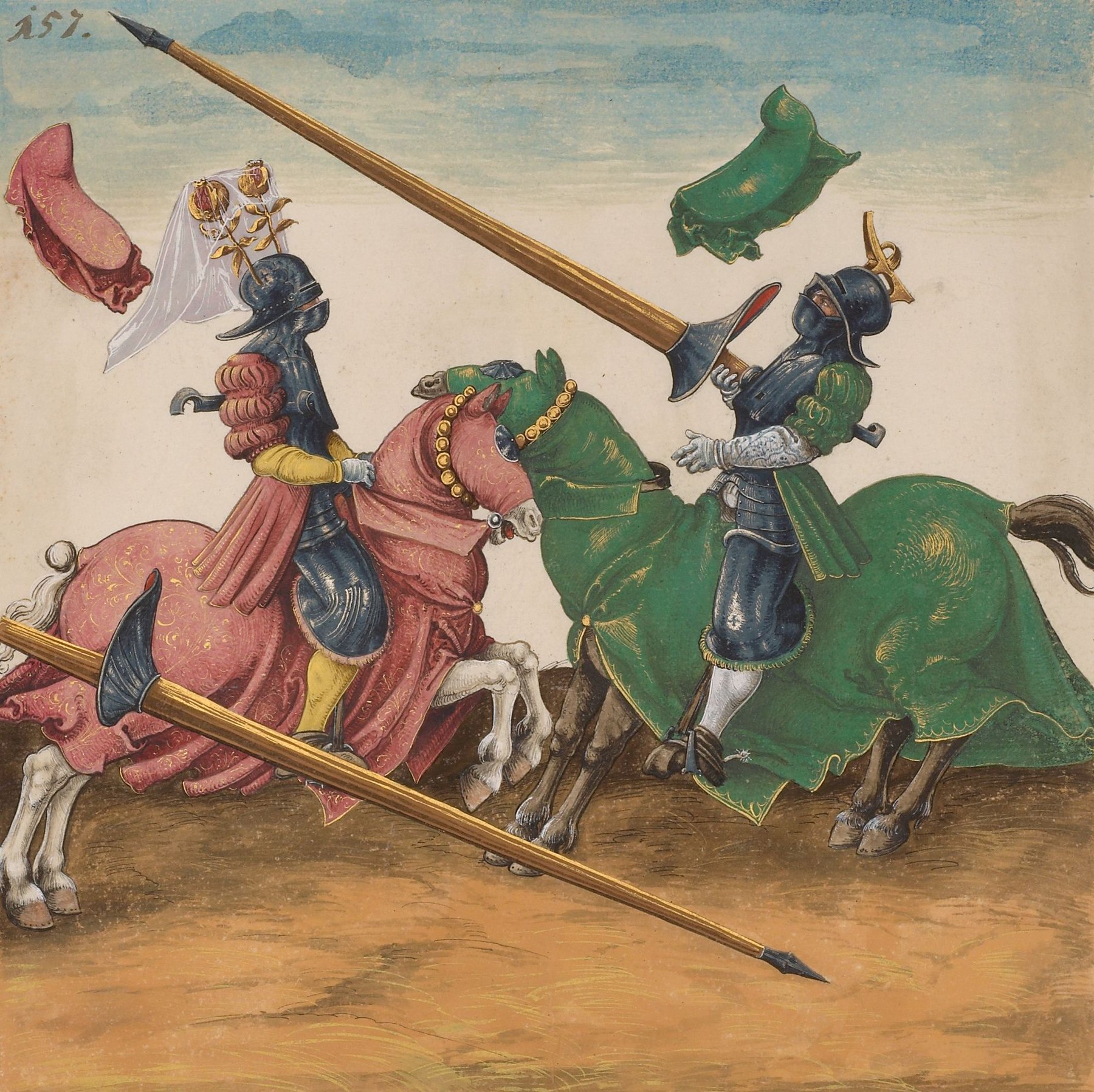D. Rulership, Feasts and Ceremony
The promotion of music by rulers tended, according to tradition, to be displayed in public festivities and church celebrations. The self-image of rulers as pious patrons of the Church also led to opulent foundations for the cultivation of music within churches and monasteries. Endowed chapels in castles and religious orders became centres of musical production: indeed, the modern musical term ‘chapel’ goes back to this tradition. On entrance into a city, rulers allowed themselves to be greeted publicly by their subjects with singing; other noble travellers also tell of musical performances by the populace, either voluntary or for money. Artists employed by court, such as trumpeters and drummers, heralds and court poets, ensured public attention wherever a ruler appeared. From the early 15th century, the Habsburgs employed well-known composers and ordered festal music for ceremonies. Archival sources furnish the names of many musicians who could perform publicly at court or in the service of a church or city administration. The court music of Maximilian I was organised in varied ways and was artistically oriented beyond the region. At particularly significant celebrations such as princely weddings, the festal splendour competed with that of neighbouring courts and nobles.
The texts marked with * are not yet available online.
- Kirche, Hof und Ritual*
- Musik in der Burg: Burgen und ihre Privatkapellen*
- Advenisti: Fürsten und Diplomaten auf Reisen*
- Akustische Herrschaftsdarstellung. Krieg und Zeremonie*
- Akustische Herrschaftsdarstellung. Hofdichter und Herolde*
- Hofmusik. Albrecht II. und Friedrich III.
- Hofmusik. Innsbruck unter Herzog Siegmund*
- „Mehrfacher Sinn“: Jacob Obrechts Missa Salve diva parens und die Königskrönung Maximilians
- Heinrich Isaac im Dienst von Maximilians kirchlich-staatlichen Zeremonien
- The Waldauf foundation at St. Nicholas‘ church, Hall in Tirol
- Musikalische Huldigungsgeschenke für Maximilian I.
- Music for a Royal Entry: The Vienna Double Wedding of 1515
- Musik für Kaiser Karl V. (1530)
